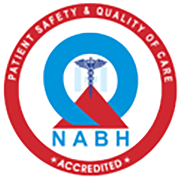Experiencing gum pain due to wisdom teeth is a common issue that many individuals face during late adolescence or early adulthood. Understanding the root causes and compatible relief methods can help you recover from discomfort and prevent further complications.
Understanding Wisdom Teeth and Gum Pain
Wisdom teeth, or third molars, typically emerge between the ages of 17 and 25. While some individuals experience seamless eruptions, others may encounter various challenges leading to gum pain.
Causes of Wisdom Tooth Gum Pain
- Eruption: As wisdom teeth break through the gums, they can cause tenderness, swelling, and discomfort. This process may also lead to redness and inflammation in the surrounding gum tissue.
- Impaction: Due to limited space in the mouth, wisdom teeth may become impacted, meaning they are trapped beneath the gum line or grow at an angle. Impacted wisdom teeth can exert pressure on adjacent teeth, leading to pain, swelling, and potential damage to other teeth.
- Pericoronitis: This condition involves inflammation of the gum tissue surrounding a partially erupted wisdom tooth. Pericoronitis can cause severe pain, swelling, and difficulty opening the mouth. If left untreated, it may lead to infection and the formation of pus around the affected area.
- Tooth Decay and Gum Disease: Partially erupted wisdom teeth can create pockets where food particles and bacteria accumulate, increasing the risk of cavities and gum infections. This accumulation can lead to bad breath, unpleasant taste, and further gum inflammation.
Also read-: Is It Wisdom Teeth or an Infection? How to tell the difference?
Home Remedies for Relief
- Saltwater Rinse: Mix a teaspoon of salt into warm water and gently rinse your mouth. This solution can reduce gum inflammation and cleanse the area, promoting healing and reducing bacteria.
- Cold Compress: Applying an ice pack wrapped in a cloth to the affected cheek for 15-minute intervals can numb pain and reduce swelling. This method helps constrict blood vessels, decreasing inflammation and providing temporary relief.
- Over-the-Counter Pain Relievers: Non-prescription medications like ibuprofen or acetaminophen can alleviate discomfort and decrease inflammation. It’s essential to follow the recommended dosage and consult with a healthcare professional if you have any underlying health conditions.
- Clove Oil: Applying a small amount of clove oil to the affected area may provide temporary pain relief due to its natural anesthetic properties. Clove oil contains eugenol, which has anti-inflammatory and antibacterial effects.
- Hydrogen Peroxide Rinse: Diluting hydrogen peroxide with equal parts water and using it as a mouth rinse can help reduce bacteria and inflammation. Ensure not to swallow the solution and rinse your mouth with plain water afterward.
- Peppermint Tea Bags: After steeping a peppermint tea bag, allow it to cool and place it on the affected area. Peppermint has numbing properties that can soothe gum pain and reduce inflammation.
Medical Treatments
- Antibiotics: If an infection is present, a dentist may prescribe antibiotics to address the underlying issue. It’s crucial to complete the entire course of antibiotics to ensure the infection is fully eradicated.
- Operculectomy: In cases of pericoronitis, removing the gum tissue covering the tooth (operculum) can prevent food and bacteria from becoming trapped, reducing inflammation and pain. This minor surgical procedure is typically performed under local anesthesia.
- Tooth Extraction: If the wisdom tooth is impacted or causing significant problems, removal may be recommended to alleviate pain and prevent further complications. Post-extraction care is essential to promote healing and prevent infection.
Related – wisdom teeth removal
- Pain Management: In addition to over-the-counter pain relievers, a dentist may prescribe stronger analgesics or recommend corticosteroid injections to reduce severe inflammation and pain.
Prevention Tips
Maintain Oral Hygiene: Brush and floss regularly to keep the area around emerging wisdom teeth clean and free from debris. Consider using an antimicrobial mouthwash to reduce bacterial buildup.
Regular Dental Check-ups: Visit your dentist routinely to monitor the development of wisdom teeth and address issues promptly. Early detection of potential problems can prevent severe complications.
Avoid Irritating Foods: Steer clear of hard, crunchy, or sticky foods that can aggravate gum pain or become lodged near wisdom teeth. Opt for soft foods and chew on the opposite side of the mouth to minimize discomfort.
Stay Hydrated: Drinking plenty of water helps flush food particles and bacteria from the mouth, reducing the risk of infection and promoting overall oral health.
Use of Orthodontic Devices: In some cases, orthodontic interventions may be necessary to create space and ensure proper alignment, potentially reducing complications associated with wisdom teeth eruption.
When to Seek Professional Help
While home remedies can provide temporary relief, persistent or severe pain should be evaluated by a dental professional to determine the appropriate course of action. Signs that necessitate immediate attention include:
Increased Swelling: Too much swelling of the gums or face may indicate an infection that requires prompt treatment.
Fever: The presence of fever alongside gum pain can be a sign of a spreading infection.
Difficulty Swallowing or Breathing: These symptoms may suggest a severe infection and warrant immediate medical attention.
Persistent Pain: If pain persists despite home care measures, it’s essential to consult with a dentist for a comprehensive evaluation.
In conclusion, understanding the causes of wisdom tooth gum pain and practicing appropriate relief strategies can provide comfort and improve oral health. Maintaining diligent oral hygiene practices and seeking professional dental care when necessary are pivotal in ensuring recovery.
Written by DR. PUNEET KATHURIA B.D.S., M.D.S., F.I.C.O.I. (USA)
 Australia No
Australia No Canada No
Canada No India Toll Free No
India Toll Free No UK No
UK No USA No
USA No











